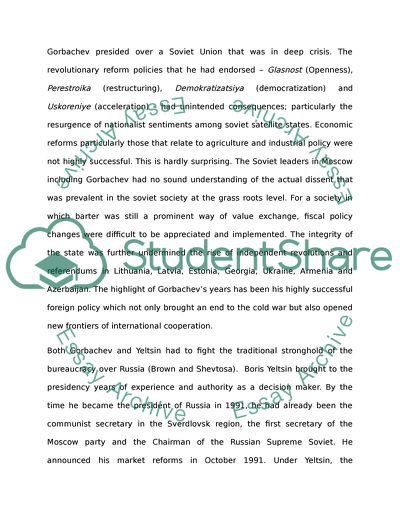Cite this document
(Political Leadership of Vladimir Putin in Russia's Transition Assignment, n.d.)
Political Leadership of Vladimir Putin in Russia's Transition Assignment. Retrieved from https://studentshare.org/politics/1722089-political-leadership-in-russias-transition-vladimir-putin
Political Leadership of Vladimir Putin in Russia's Transition Assignment. Retrieved from https://studentshare.org/politics/1722089-political-leadership-in-russias-transition-vladimir-putin
(Political Leadership of Vladimir Putin in Russia'S Transition Assignment)
Political Leadership of Vladimir Putin in Russia'S Transition Assignment. https://studentshare.org/politics/1722089-political-leadership-in-russias-transition-vladimir-putin.
Political Leadership of Vladimir Putin in Russia'S Transition Assignment. https://studentshare.org/politics/1722089-political-leadership-in-russias-transition-vladimir-putin.
“Political Leadership of Vladimir Putin in Russia'S Transition Assignment”, n.d. https://studentshare.org/politics/1722089-political-leadership-in-russias-transition-vladimir-putin.


